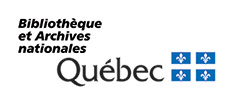Preliminary programme
‚ÄúOne recurring problem is HGIS scholars‚Äô¬†lack of awareness of one another‚Äôs work‚Ķ‚ÄĚ1
Friday 31 January 2014
| 13:00 – 13:30 | Registration
|
| 13:30 – 14:00 | Welcome and opening remarks with introductions
|
| 14:00 – 15:30 | Session 1 ‚Äď Sources
Theoretical and critical discussion on cartographic, alphanumeric, iconographic and literary sources; location and accessibility. Presentations : |
| 15:30 – 16:00 | Refreshment Break
|
| 16:00 – 17:30 | Session 2 ‚Äď From source to data and metadata
Discussion of issues surrounding vectorisation, data creation and data description. Comparison of how different disciplines deal with these issues.Presentation : |
| 18:30 | Evening Dinner
|
Saturday 1 February 2014
| 9:00 – 10:45 | Session 3 ‚Äď Open Data and access to data
Discussion on the regulatory framework regarding the use of available sources, in the spirit of open data. Discussion on the intellectual property of data created by HGIS projects. Presentations :
|
| 10:45 – 11:00 | Refresment Break
|
| 11:00 – 12:15 | Session 4 ‚Äď ¬†Visualization tools and public user needs
Presentation of online visualization systems and discussion of the needs of users (scholars, students, non-specialists) in different contexts (research, teaching, museums) Presentations: |
| 12:15 – 14:00 | Lunch (on site)
|
| 14:00 – 15:00 | Session 5 ‚Äď Future tools
Following the discussions in Session 4, what would be general requirements for tools which would fit the needs of the various types of users? Presentations:
|
| 15:00 – 15:15 | Refreshment Break
|
| 15:15 – 17:00 | Session 6 ‚Äď Action plan
Summary of the Carto2013 presentation by M. Fortin and B. Moldofsky. Presentation of ongoing and upcoming projects to facilitate collaboration and community. General discussion of the relevance of reinforcing the Canadian HGIS community, by consolidating a geohistorical data portal to facilitate information sharing and to eventually create a data repository. Definition of a roadmap with short, medium and long term targets. |
1.¬†Anne Knowles, ‚ÄúThe Contested Nature of Historical GIS‚ÄĚ, International Journal of Geographical Information Science, 28:1 (2014), p. 206-211.
Programme préliminaire
‚ÄúOne recurring problem is HGIS scholars‚Äôlack of awareness of one another‚Äôs work‚Ķ‚ÄĚ 1
Vendredi 31 janvier 2014
| 13h00 à 13h30 | Accueil des participants
|
| 13h30 à 14h00 | Mot de bienvenue et présentation des participants
|
| 14h00 √† 15h30 | S√©ance 1 ‚Äď Les sourcesPr√©sentation et discussion th√©orique et critique des sources cartographiques, alpha-num√©riques, iconographiques et litt√©raires, leur rep√©rage et leur accessibilit√©.
Présentations : |
| 15h30 à 16h00 | Pause
|
| 16h00 √† 17h30 | S√©ance 2 ‚Äď Architectures et processus compar√©sDiscussion des enjeux de vectorisation, de saisie et de description de l‚Äôinformation. Comparaison des d√©marches propres aux diff√©rentes disciplines.
Présentation : |
| 18h30 | Souper
|
Samedi 1er février 2014
| 9h00 √† 10h45 | S√©ance 3 ‚Äď Acc√®s aux donn√©es, conditions d‚Äôutilisation et propri√©t√© intellectuelleDiscussion sur le cadre r√©glementaire r√©gissant l‚Äôutilisation des sources disponibles, dans la mouvance des donn√©es ouvertes. Discussion sur la propri√©t√© intellectuelle des donn√©es cr√©√©es dans le cadre de projets SIGH.
Présentations :
|
| 10h45 à 11h00 | Pause
|
| 11h00 √† 12h15 | S√©ance 4 ‚Äď Les outils de visualisation et les publicsPr√©sentations de syst√®mes de visualisation en ligne et discussion sur les besoins des diff√©rents publics (chercheurs, √©tudiants, public non initi√©) dans diff√©rents contextes (recherche acad√©mique, enseignement, mus√©es, etc.)
Presentations: |
| 12h15 √† 14h00 | D√ģner sur place
|
| 14h00 √† 15h00 | S√©ance 5 ‚Äď Quels outils pour l‚Äôavenir? √Ä la lumi√®re des discussions de la s√©ance 4, peut-on envisager le d√©veloppement d’outils performants r√©pondant aux besoins des diff√©rents publics?
Présentations:
|
| 15h00 à 15h15 | Pause
|
| 15h15 √† 17h00 | S√©ance 6 ‚Äď Doit-on et peut-on renforcer la communaut√© H-SIG Rappel de la pr√©sentation de M. Fortin et de B. Moldofsky √† la conf√©rence Carto2013. Pr√©sentation de projets de concertation en chantier. Discussion g√©n√©rale sur la pertinence de renforcer la communaut√© SIGH canadienne, par la consolidation d’un portail f√©d√©rateur favorisant l’√©change d’information et visant √† terme le d√©p√īt de donn√©es. √Čtablissement d‚Äôune feuille de route avec √©ch√©ancier √† court, moyen et long terme.
|





